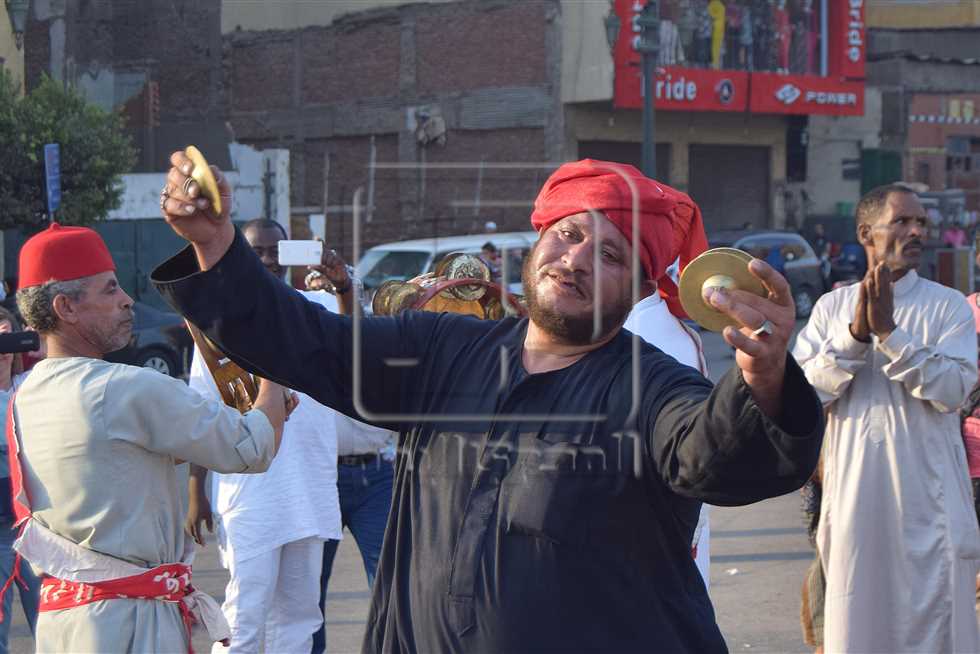A recent ban on Sufi zikr, or remembrance ceremonies, from the Ministry of Awqaf (Religious Endowments) made headlines recently when several Sufi sects were prevented from observing ceremonies at the Sayyeda Zeinab and Sayyeda Nafisa mosques on 28 April. Hundreds of Sufis protested the sudden ban as security forces closed mosques and switched off the lights.
An official spokesperson for the Ministry of Awqaf stated that the ban aims to protect the holiness of mosques, particularly those that contain shrines, which he said was compromised by inappropriate behavior, like loud voices and waiting inside mosques late at night. Such conduct was associated with unregistered Sufi sects who were not issued permits and are said to have brought food and beverages into mosques.
In reaction to the ban, hundreds of Sufi followers entered Sayyeda Zeinab mosque after noon prayers last Friday, reciting Quran and Sufi chants. Some went as far as calling for the creation of a Sufi political party.
“There is a complete coordination between us and the Ministry of Awqaf with regard to the ban,” said Sheikh Abdel Hadi Al-Qasabi, Sheikh of the Supreme Sufi Council (SSC).
“This decree comes as a re-enforcement of Law 118 that requires any Sufi sect to get a permit from SSC in order to establish a sect.” Al-Qasabi said, adding that the SSC then informs the Ministry of Awqaf of the time and place of the observances. Al-Qasabi noted that many unregistered Sufi sects hold ceremonies when and where they wanted, which is sometimes “during prayer time, for instance, which is not rational.”
When asked about the call for establishing a Sufi party, Al-Qasabi stressed that the call from the SSC. In fact, the sheikh called the requests for a political party “unconstitutional since the Egyptian law bans any parties based on religion.”
This is not the first trouble in the Sufi community. Last year, the SSC was embroiled in conflict over the succession of the late Sheikh Ahmed Kamel Yassin Al-Refaai. The dispute between Sheikh Alaa Abul Azayem and Sheikh Abdel Hadi Al-Qasabi, both claiming the right to the post, went to a Sufi court before Al-Qasabi was appointed Sheikh of the Supreme Sufi Council.


